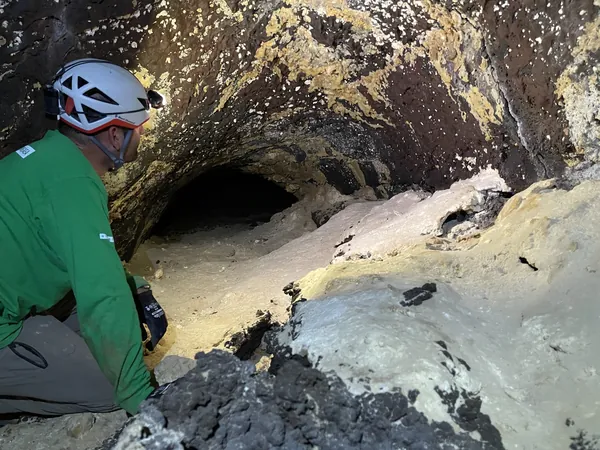
Groundbreaking Research on Volcanic Caves Sheds Light on Life-Hunting Missions to Mars!
2024-11-18
Author: Li
Groundbreaking Research on Volcanic Caves Sheds Light on Life-Hunting Missions to Mars!
In a fascinating twist, researchers have plunged deep into the world of lava tubes—naturally formed caves birthed by volcanic eruptions—to uncover secrets not only about our planet’s past but potentially about life on Mars. A global collaboration, headed by Professor Bogdan P. Onac from the USF School of Geosciences, has revealed how these natural formations may serve as crucial analogs in the quest for extraterrestrial life.
The venture took the team to Lanzarote, a volcanic island off the northwest coast of Africa, where they meticulously examined six expansive lava tubes, some of which are so vast that they’ve even hosted underground concerts! “Although the lava tubes were discovered years ago, this is the first detailed investigation into the minerals and microbial life within them,” Onac explained.
Published in *Communications Earth & Environment*, the research utilized cutting-edge molecular, isotopic, and mineralogical techniques to analyze various mineral deposits found within the tubes. Astonishingly, the investigators discovered preserved biosignatures—clues indicating microbial activity—with significant findings including calcium and sodium sulfates. These compounds suggest that bacteria once thrived within these caves, painting a vivid picture of Earth’s ancient ecosystems.
“This study not only enhances our understanding of geological and environmental transitions on Earth,” emphasized Onac, “but it also positions lava tubes as potential havens for microbial life. This is a game-changer for astrobiology, particularly in identifying biosignatures on Mars and other celestial bodies.”
Beyond the implications for understanding life on Earth, the results of this research may also revolutionize the search for signs of past life on Mars. Just like their Earthly counterparts, Martian lava tubes are believed to be similarly protected from harsh environmental conditions and could contain sulfate-rich minerals that showcase signs of ancient microbial life.
As NASA gears up for its upcoming missions to Mars, many are eager to see how these findings will play into the new exploration strategies. The team isn’t done yet; they have more studies in the pipeline regarding their findings from the Lanzarote tubes and are also set to investigate newly formed lava tubes in Iceland.
Could this research be the stepping stone to discovering life on another planet? Stay tuned, as the quest for answers continues!



 Brasil (PT)
Brasil (PT)
 Canada (EN)
Canada (EN)
 Chile (ES)
Chile (ES)
 España (ES)
España (ES)
 France (FR)
France (FR)
 Hong Kong (EN)
Hong Kong (EN)
 Italia (IT)
Italia (IT)
 日本 (JA)
日本 (JA)
 Magyarország (HU)
Magyarország (HU)
 Norge (NO)
Norge (NO)
 Polska (PL)
Polska (PL)
 Schweiz (DE)
Schweiz (DE)
 Singapore (EN)
Singapore (EN)
 Sverige (SV)
Sverige (SV)
 Suomi (FI)
Suomi (FI)
 Türkiye (TR)
Türkiye (TR)